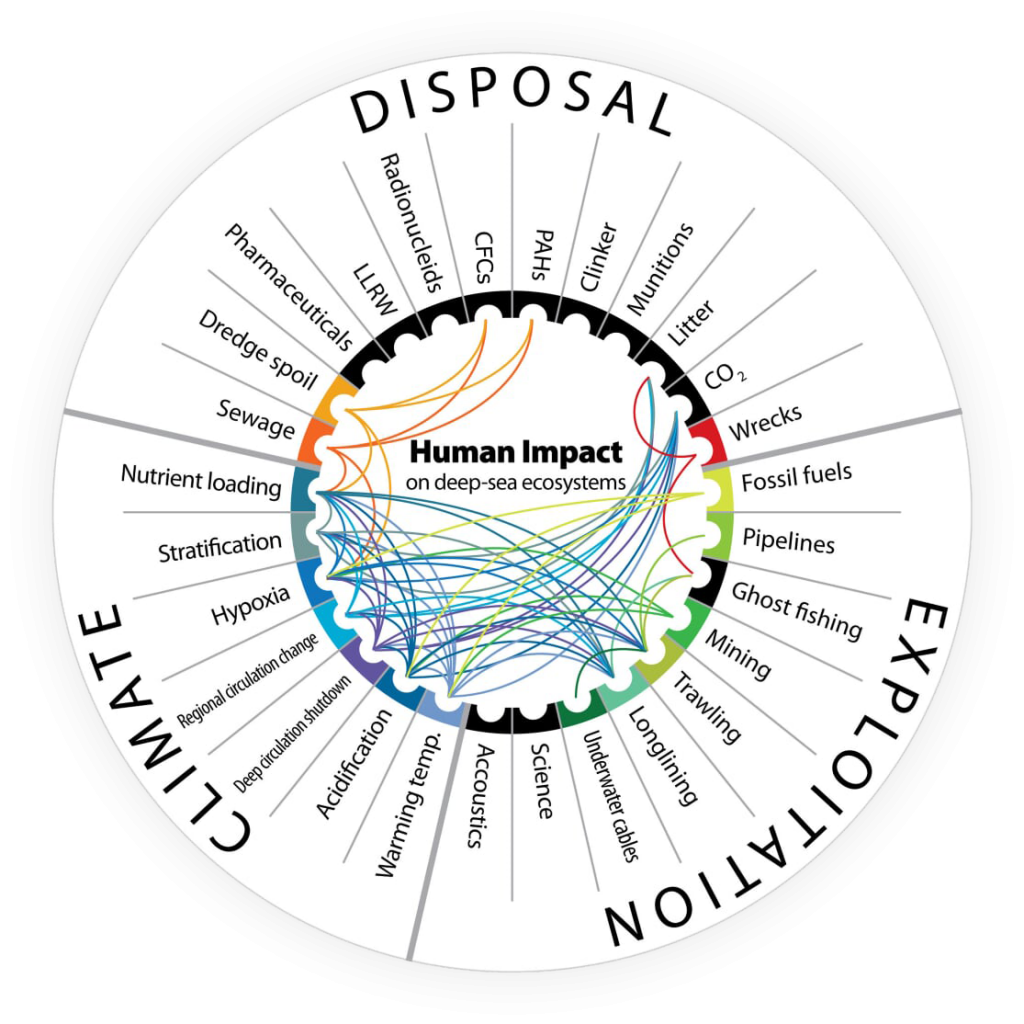A Global Issue
Human activities in the deep ocean are accelerating rapidly, mostly out of sight, directly disturbing the stability and natural balance of this finely tuned ecosystem. Indirectly, as human-induced climate change advances, deeper water is warming, the concentration of oxygen is decreasing and the pH is getting lower (more acidic). Consequently, the resilience of the deep ocean, its residents and the key ecosystem services it provides is becoming compromised.
Deep-ocean biodiversity supports critical ecosystem functions and services including nutrient recycling, carbon sequestration and a storehouse – a living library – of genetic resources that may hold benefits to humans and the key to future adaptation. It is imperative, therefore, to manage the deep ocean from a global, multi-sectoral and cross-disciplinary perspective, to enable its sustainable use and to safeguard this vital planetary ecosystem for current and future generations.
Gaps abound in deep-ocean governance: most legal frameworks, both national and international, lack essential mechanisms to manage and protect ocean resources. Many countries with deep-water resources lack the expertise to support sustainable management and protection, while in international waters, there is no consistent application of environmental assessment approaches. There is a real risk that the deep ocean will become further industrialised and degraded without sufficient environmental planning.














